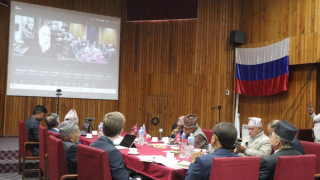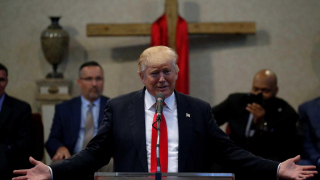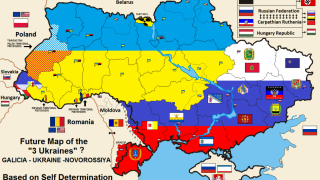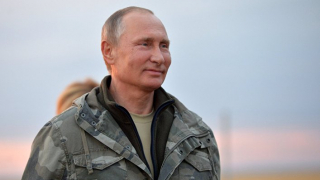The world is going to multipolarity
Leonid Savin, a Russian political analyst, is of the opinion that the world is moving in the direction of “multipolarity” as the world is fed up with unipolar moves by Washington.
“The world is going to multipolarity, and humanity is tired of Washington’s dominance and unipolar operations,” Savin tells the Tehran Times.
Savin also says Moscow is looking to the East as Russians have bitter memories of the West.
"Russian decision-makers started looking to the East more and more. Because historically, we faced serious threats from the West."
Following is the full text of the interview:
Q: Iran and Russia are set to renew their "20-year agreement". What is the importance of this agreement in terms of bilateral, regional, and international cooperation?
A: The actual agreement was signed on March 12, 2001. During the last 20 years, there were many changes from attacks in New York and the American occupation of Iraq and Afghanistan till colored revolutions, coups, with attempts in Russia and Iran. The world is going to multipolarity, and humanity is tired of Washington’s dominance and unipolar operations. Both Iran and Russia are targets of U.S. sanctions, soft and strategic ways to destabilize our countries. Now we see the necessity of more active cooperation in defense, security, trade, industry, etc.
Defense and security are very important, and the purpose of Iran to conduct new drills in the Persian Gulf will be a good response to U.S. presence in the region with an impact on regional stability. But other types of bilateral ties also need to be promoted and developed. We are neighbor countries (the Caspian Sea only between us) and destined to be together in Eurasian affairs. From the global geopolitical point of view, Russia and Iran are important poles, and our perception of the world polity is similar in many aspects.
“Now we see the necessity of more active cooperation in defense, security, trade, industry, etc.” between Russia and Iran, says Leonid Savin.
Q: Some analysts and politicians argue that Russia, China, and Iran are forming an alliance against Washington's bullying, sanctions pressure, and use of the dollar as a weapon. They cite the Iran-China-Russia joint naval exercise in the Indian Ocean and the Gulf of Oman in December 2019 as the signs of such an alliance. What is your comment?
A: It is not alliance; because alliance usually means the duties and obligations of the members. There were no obligations, but mutual interests based on political realism. Actually, the alliance of mentioned countries (plus any) may affect much more on the fall of U.S. hegemony because it will more consolidate with certain roadmap and strategy, backed by our resources, manpower, and geographic positions.
China has a specific outlook and prefers to run its own projects (organization of SCO even as Beijing's idea to secure its borders and domestic issues like Uyghur and Tibet separatism), especially focused on communications (like BRI), not integration. Because of cheap labor forces in China, there is an economic opportunity to provide loans to other countries without political demands. Till now, this tool was very effective for Chinese foreign policy, but it cannot be useful all time and everywhere.
Iran has a special agreement with the Eurasian Economic Union led by Russia. But historically, Iran was more interested in Africa, the Near East region, and Central Asia. So, it seems that the current turn of the three states is unique. But joint military exercises, including bilateral, are clear messages to the outsiders. I think that these tripartite efforts should be expanded and organized somewhere in the Caribbean, too, in partnership with our partners from Venezuela.
Q: What is your opinion of U.S. sanctions on Russia and even China? Can the U.S. undermine these two countries' influence?
A: For the last six years after sanctions of the U.S. and its European satellites were imposed against Russia, there is no such negative impact on the Russian economy like architects of the sanctions predicted. The same for Iran and China. Western policymakers counted on our dependence on supplies, technologies, etc. But Russia implemented counter sanction to "beat the enemy by his own arms".
We are succeeding in many spheres. Some production still not available here, but the government provided all the necessary needs to the people. And Russia secured our foreign policy for next year because we see the real face of Western diplomacy.
Even pro-U.S. politicians and opinion-makers changed their minds. It is very important for the reorganizing of the political process and geopolitical priorities. Russian decision-makers started to look to the East more and more. Because historically, we faced serious threats from the West, the Napoleon invasion in 1812 and Hitler attack in 1941; these sanctions were just confirmation of the coward Western intentions.
“We need to note that advisers and persons responsible for the Middle East (West Asia) policy in the U.S. are linked with the Zionist pro-Israel lobby.”
Q: After failing to extend arms embargo, the U.S. is pushing to restore UN sanctions against Iran by invoking a snapback mechanism despite the fact that the U.S. quit the JCPOA in May 2018. Please give your comment.
A: Under the Trump administration, the White House and State Department will do everything to push on Iran. We need to note that advisers and persons responsible for the Middle East (West Asia) policy in the U.S. are linked with the Zionist pro-Israeli lobby. On the other hand, there should be no illusion about Democrats who are interested in controlling Iran through other ways. Also, the U.S. actively runs media propaganda and information operations against Iran. Tehran condemned for mostly all weird and chaotic things in the region from clashes in Syria and Iraq till blast in the port of Beirut and organization of narco-traffickers in Latin America. The last U.S. disinformation was that Iran proposed bounty for Taliban members to kill American troops before there were claims about Russia, but it was changed. Everything should be analyzed like multilayer but a united strategy of the U.S. against Iran.
Q: How do you assess European states' position to U.S. sanctions against Iran? Why do they encourage Iran to fulfill its obligations in the nuclear deal while they cannot or are unwilling to resist the U.S. sanctions?
A: It is a pity that European countries still under the strong influence of Washington and afraid to act free and be independent. It is signing that the Euro Atlantic community is more powerful than continental Europe. Because two entities exist in one geographic and political space. Russia also suffers from irrational acts of some European politicians directed against the interests of European people. But if to consider the EU as a project of the U.S. and European Commission as anti-democratic government (members of the European Commission are not elected), there need to be real tectonic shifts in the European politics to get own sovereignty back. Any efforts from Russia and Iran for Europeans to be more Europeans and act in their own interests will be immediately labeled like the hostile interference into affairs. So, the issue is really tragic.














